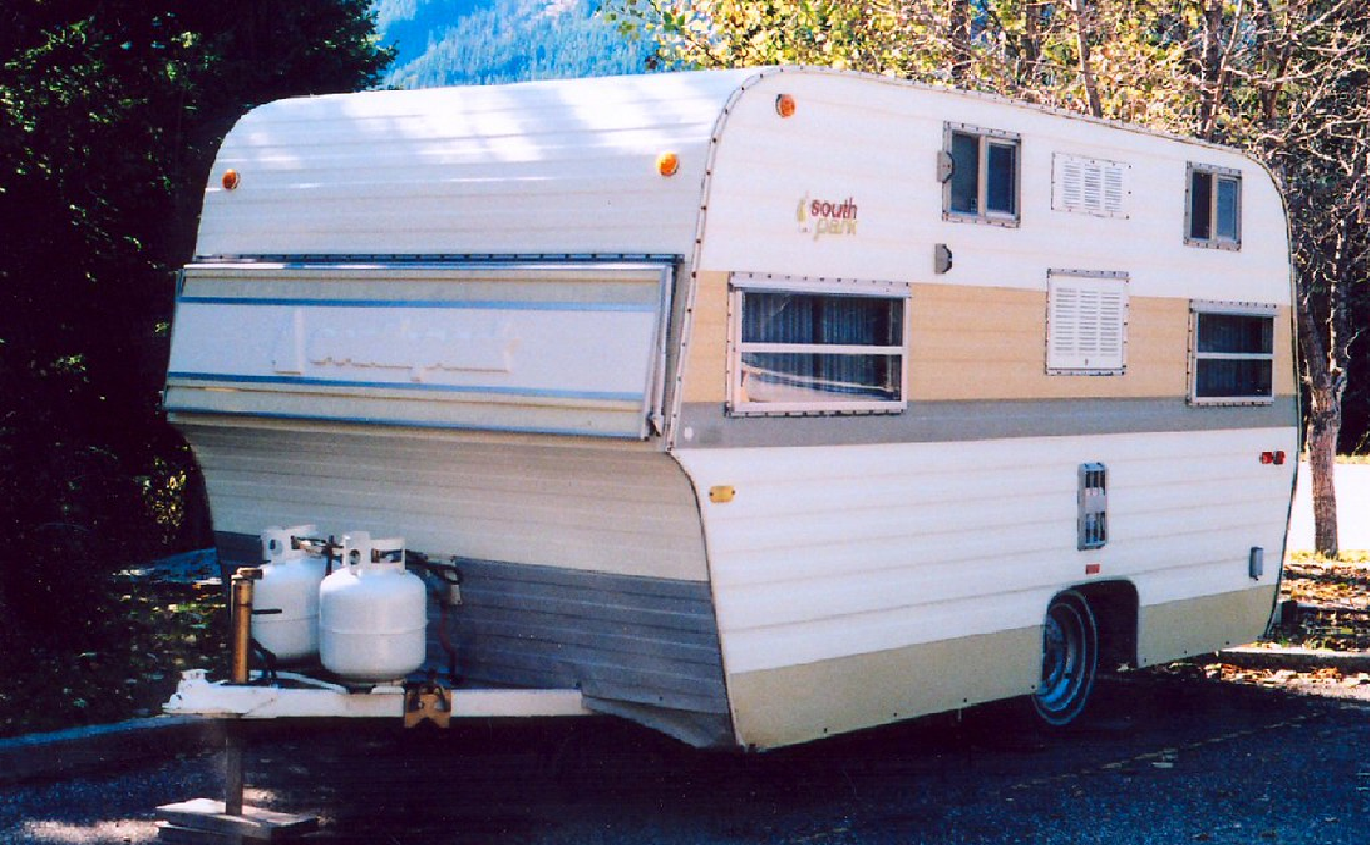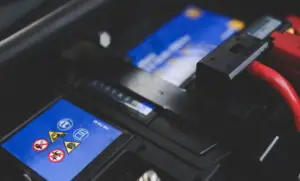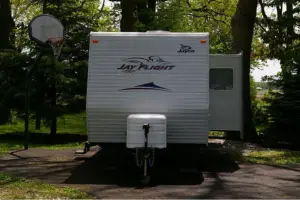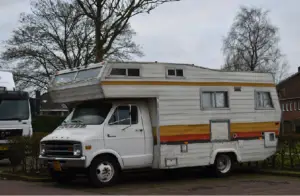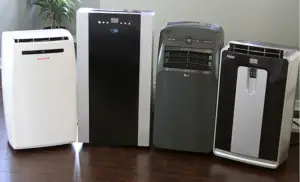Propane undeniably makes life on the wheels so much easier.
Whether you need to stay warm in the cold nights, need to prepare yourself a hot plate, need to heat some water, or keep groceries fresh in your fridge.
All these are possible thanks to this cost-effective source of energy. Therefore, when something goes wrong with the RV propane, you are sure to feel the pinch. This article will dive into some of the issues you are likely to encounter before they occur.
Before we dive into the problems, let us first understand some critical aspects of an RV propane regulator.
What is an RV Propane regulator?
Generally, an RV propane regulator is a device designed to control the flow of propane from very high-pressure propane tanks to other appliances on an RV.
In simple terms, an RV propane regulator acts as a middleman between the tanks and an appliance.
Contrary to the usual first-stage regulators available on gas grills or fire pits in households, RVs are mandated to have two-stage regulators.
How two-stage RV propane regulators work
Typically, gas regulators reduce high gas pressure from the source to a lower usable and safe pressure. Two-stage regulators lower the pressure in two stages to a more constant delivery gas pressure.
They are two regulators built as one, whereby the first regulator reduces the incoming pressure to an intermediate pressure. The first regulator is not adjustable. On the other hand, the second regulator lowers the pressure further but can be adjusted within the desired range.
Therefore, pressure from the first stage acts as the source for the second regulator, while the second one can be user-controlled. These two stages are critical in an RV because they guarantee a more stable delivery pressure regardless of changes in the inlet pressure, thus promoting safety.
Issues related to RV Propane
There are so many things that could be wrong with your mobile gas supply, and most often than not, the culprit is the RV propane regulator. These Issues include;
A leaking RV propane regulator
A leaky regulator is very dangerous the longer it goes undetected. The first sign to look out for is the smell of gas. A pungent smell indicates that the propane regulator is either damaged or not properly sealed.
To confirm this, you can perform the leak test using a mixture of soapy water.
The first step is to prepare the solution and then apply it to the regulator, covering the O-ring and the connection points between the hose pipe and the valves. Proceed by switching between” off” and “on” positions on the propane valve. If bubbles start forming, then that is an affirmation of a leak.
The best solution to this problem is immediately cutting off the tank’s propane supply and contacting professionals to handle the situation.
It is highly recommended that you not fix leaks on your own as you may be doing more harm than good. Remember, gas leaks could quickly turn tragic and cause massive fires.
RV not getting propane
Most people refer to propane as the heart of the RV. If you are one of them, you probably understand the substantial impact of not getting propane aboard (appliances not working). It could also make or break your entire experience on the road.
If your RV is not getting propane, then there are four things you should look at first. They are;
Ensure the propane valve is turned ‘On.’
This issue is common, mainly if you had not used your RV for a while or just had a refill. Perhaps someone just forgot to turn on the valve.
The right thing to do is keep it off before and during the refill and when you don’t need the gas. It only becomes an issue if you forget to turn it back on when you need it.
The excess flow valve
An excess flow valve is an additional safety feature –as I would call It- that comes with a propane regulator.
The device can be a spring-loaded valve or small ball positioned at the center of gas fittings to detect anomalies in the flow of propane. It immediately cuts off the propane supply as soon as it detects propane escaping the tank too quickly.
An engaged excess flow may also signify system leaks or a false alarm when you open the propane tank too quickly. In the second case, it is advisable to turn off all your appliances and the propane tank valve, wait for some time (perhaps 5-10 minutes) and then turn the propane valve back on, but this time very slowly.
The slow opening of the valve pressurizes the propane system without engaging the valve until you can get a full flow of propane. Note that once you attain a full flow, always operate the tank when it is fully open.
Loose fittings
If the hose and tank fittings are not done correctly, the valve will likely detect that as a leak and remain closed. If all the above measures prove futile, try unscrewing the hose fitting and screwing it back.
It is especially the case for older brass fittings that easily thread incorrectly than the more oversized plastic screw caps.
A noisy RV propane regulator
Ideally, your propane regulator is not supposed to make any sound. Humming, buzzing, hissing, or any other weird sound from the gas regulator may be a red flag indicating that something is amiss.
In this case, it is advisable to check for leaks and study the color of flames on your gas burner.
Regardless of whether or not everything looks okay, It may be wise to get a proper diagnosis from a professional and, If need be, get all the necessary repairs as soon as possible.
A hissing propane tank
There are three possible sounds from a propane gas tank: hissing, knocking, and gurgling or humming. Each of the noises indicates different issues with your propane tank, such as;
Hissing sound
The most common noise indicates a gas leak from the gas tank. The next step of action to counter this is to turn off the tank immediately.
There is not much you can do about a leaking tank; therefore, you should contact a technician as soon as possible.
It is pretty easy to confuse the hissing noise for the initial gas rush whenever you turn on the propane line; however, the hissing sound may be accompanied by a pungent smell and may also persist for long.
Knocking sound
A knocking sound once you turn on your propane gas tank may be an indication of the uneven mixture of propane and air. This is evident from the color of flames when you light your gas burner.
Typically, when air and gas are in the correct measure, the appropriate color is blue flames with yellow tips.
However, if the flame turns out yellow or white, then your tank needs a little help in controlling the airflow. Although this issue is not dire, it may present the risk of other problems in the future.
A gurgling or humming sound
Either of these sounds could be an indication of an overfilled propane tank. The sound is a result of excess pressure on the regulator that reduces the outflow from the tank.
An overfilled propane tank could also cause weak flames, discolored pilot lights, and low heat. However, do not be tempted to drain the excess gas by yourself; instead, reach out to a propane supplier.
Another cause for the humming noise may be vibrations from the regulator or trapped air inside the hose.
An RV propane regulator gone bad
Finally, a defective RV propane regulator may be the issue. Often, a bad regulator will disguise itself as most of the problems mentioned above before failing completely. Some of the common signs that you need to replace your propane regulator include;
- Lazy yellow flames from your burners
- Unusual noises such as popping sounds
- Heavy soot deposits as a result of weak flames
- A leaking regulator
- No propane flow to appliances
- Failure in the automatic changeover
Propane regulators, like any other devices, do not last forever; therefore, if your regulator has served you for a couple of years, then it may give in to the stress and begin acting up. It may be time to get you a new one.
RV propane regulator replacement
Whether you need a spare regulator or replace the one you have, keep in mind that not all propane regulators are the same. Although they pretty much have similar functionalities, they vary in features.
Here is a summary of things to consider when looking for the best replacement are;
- The capacity-the capacity of a regulator is measured in terms of British Thermal Units (BTU). The more the BTU capacity the regulator has, the more power it has.
- Price- invests in affordable propane regulators but does not compromise on quality. You may have to go a bit over budget for a more efficient device for a worthy cause.
- Propane pressure- check with your supplier on the required pressure
- Reviews- Check on what fellow RVers think about brands and models from their firsthand experience. Often problems recorded by other users are most likely to recur.
- Getting a propane regulator replacement is not simply about walking into a store and getting the most affordable one.
- Invest in one that will serve you for a while (on average, it should last from 15 to 25 years).
- The best way to go about it is to consult a technician for the proper choice. Also, have it replaced by the supplier to ensure that all preventive measures are taken. Confirm that all tests are made, including leak checks
The same case applies when you need to adjust or reset your RV propane regulator. Let the professionals handle it.
Testing an RV propane regulator
Testing is an essential part when handling propane regulators. The major RV propane regulator tests include
Leak test
Leak tests are the easiest test, and at times, all you need is your nose to detect the pungent smell of propane.
The safest way to confirm the leak is to conduct a soapy water test by mixing a teaspoon of soap into a cup of water and applying the solution to the area.
Any signs of bubbles indicate gas leaking from the area. Optionally, you could use a gas leak detector to do the job.
Regular Flow- Pressure Test
This test is conducted using a water manometer by installing the device into the regulator’s outlet test tap and relight appliances supplying propane at its total capacity.
Once all appliances are at full capacity, check pressure readings on the manometer and compare against the appropriate pressure specifications from the propane tank manufacturer.
Regulator lock-up test
The regulator’s pressure test is used to detect the pressure levels in the regulator’s outlet against the setpoint required to shut it off tight.
A manometer is also instrumental in conducting this test if results show an increase in lock-up pressure by more than thirty percent, the need to replace the regulator.
Inefficiencies in propane usage
It is indisputable that propane usage has several indispensable advantages such as;
- It is a clean source of energy
- It is environmental friendly
- Affordable
- Versatility
- Reliability
- Abundance
On the downside, propane has some shortcomings. The disadvantages of using propane include;
It can cause health problems or even poisoning if inhaled or swallowed.
Requires delivery to homes or recurring refill of propane tanks
Propane is not safe as it burns very quickly. The storage of propane in tanks and under high pressure increases the chances of explosions.
Precautions to take when using propane
Here is a roundup on how to stay safe around propane.
- Always turn off the valves or regulators when you don’t need to use propane.
- Occasionally perform maintenance through leak testing and testing for pressure.
- Ensure propane tanks are transported in an upright and secure position Ensure that propane cylinders are stored in a cool and ventilated area on the RV and away from engines to avoid heating
- Only use propane for approved appliances
- Replace propane equipment such as regulators and tanks before they become entirely dysfunctional
- Always use the services of a technician to replace, adjust or maintain your propane system.
RV propane may be convenient, but a lot needs to be considered regarding safety –mainly because it involves life on the move.
Issues are inevitable; however, note that there is a difference between troubleshooting and diagnosis. You may troubleshoot the problems, but it is not until you get a diagnosis from a professional that the professional can implement solutions.
The risks are dire, therefore keep your safety first and always have a technician on call no matter where you go.

